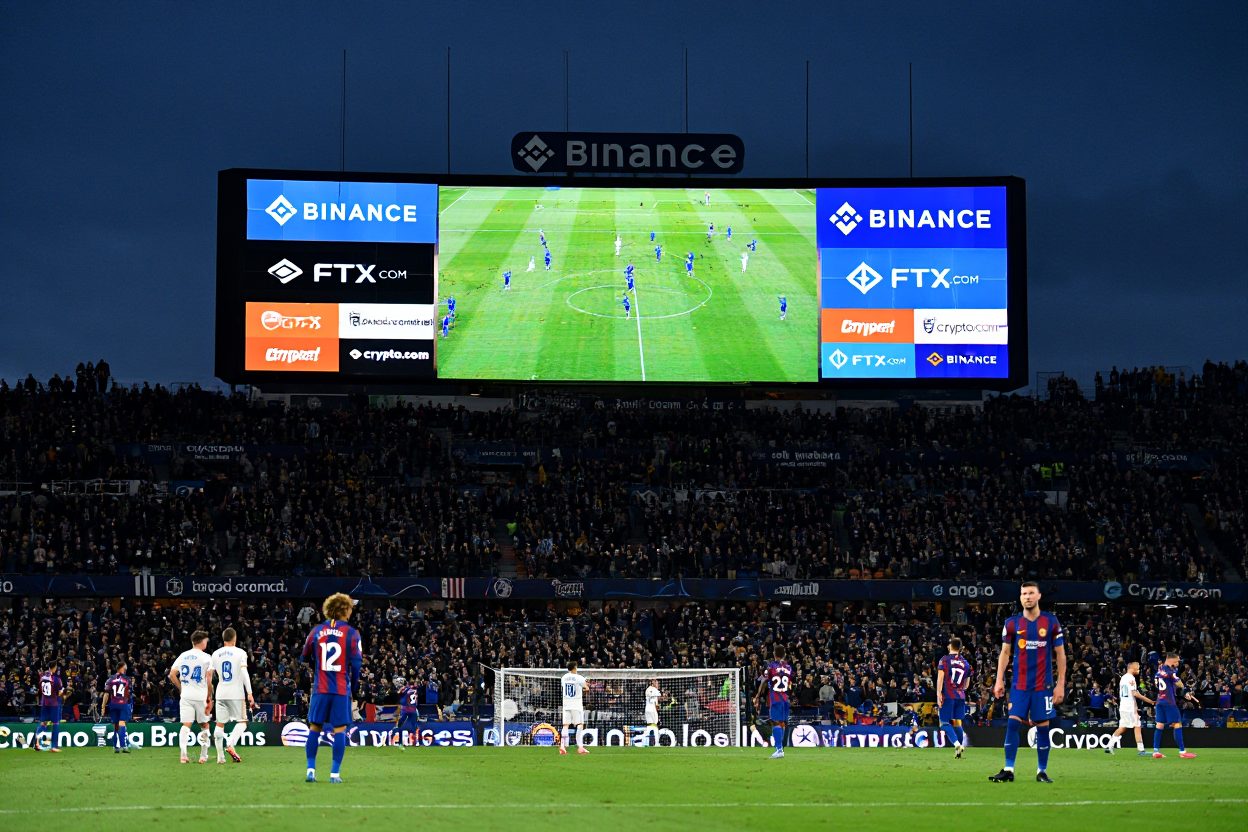
Crypto, Clubs, and Contracts: How Cryptocurrency Is Reshaping Football in 2025
In 2025, the lines between traditional football institutions and the cryptocurrency world are blurrier than ever. What started as a handful of sponsorships has evolved into a deep, strategic integration: crypto exchanges own stakes in clubs, player transfers are paid in digital assets, and blockchain is redefining the very structure of football contracts. This is more than a trend — it’s a transformation. And for fans, investors, and bettors alike, understanding this new ecosystem is key to staying ahead. Whether you’re exploring new platforms or planning to Betano sign up here to test your predictions, staying informed on these crypto-sport dynamics can give you a real edge.
Crypto Companies Are Taking the Field
The most visible layer of crypto’s involvement in football is sponsorship. A number of major crypto firms have formed partnerships with top-tier clubs and global competitions, seizing the sport’s enormous audience reach.
WhiteBIT and Juventus represent one of the most prominent examples. WhiteBIT, Europe’s largest crypto exchange by traffic, entered a three-year deal with Juventus, becoming the club’s official crypto exchange and sleeve sponsor. Their collaboration began at the 2025 FIFA Club World Cup and includes exclusive digital content and fan engagement initiatives. WhiteBIT’s mission is clear: to make crypto more accessible by embedding it into global football culture.
Kraken, another global exchange, followed a similar path by sponsoring Tottenham Hotspur. Their brand now features prominently on the team’s sleeves, reflecting a broader strategy to leverage football’s global visibility and tap into a massive, engaged fanbase.
Bitpanda partnered with Paris Saint-Germain (PSG), blending digital asset investment with elite football. This move positions Bitpanda not just as a financial tool but as part of the everyday life of football supporters, offering new engagement models like exclusive NFTs or fan token rewards.
The scale continues to grow. Crypto.com is now an official partner of the UEFA Champions League, the most watched club competition in the world. This partnership includes branding rights, digital activations, and even unique crypto-based fan experiences.
Perhaps the most ambitious move came from Tether, issuer of the world’s largest stablecoin, which purchased a minority stake in Juventus worth approximately $50 million. The goal? To integrate blockchain, AI, and digital finance into the club’s long-term operations.
Finally, XBO.com became the official global sponsor of the Argentinian national team, marking an expansion into South American football and aligning with one of the most passionate fan bases in the world.
Why Crypto-Football Partnerships Matter for Bettors
For those who bet on football — whether casually or professionally — this integration brings both opportunity and complexity.
The involvement of crypto platforms often coincides with the launch of football-inspired casino games, token-based promotions, or blockchain-powered live odds systems. Many crypto-friendly platforms even offer sports-themed slots and virtual matches, allowing fans to bet beyond the 90 minutes of a real match. Offers like the Gala Casino welcome offer demonstrate how traditional casino brands are blending football and gaming to engage users with themed experiences.
With crypto now part of football’s financial fabric, bettors must think beyond the pitch. Player performance, club strategies, and even market sentiment around crypto-sponsored teams can influence betting odds — especially in niche or prop markets.
The Financial Shift: How Crypto Is Changing Transfers and Operations
Beyond visibility and branding, cryptocurrency is also redefining the economics of football. In 2025, clubs are increasingly turning to blockchain to finance operations, transfer players, and restructure contracts.
Faster, borderless transactions are one of the main advantages. Unlike traditional banking systems, which often involve delays, high fees, and third-party bureaucracy, crypto transfers are instant and transparent. This allows clubs to complete deals quickly — a vital edge during tight transfer windows.
Lower fees also mean more budget flexibility. When agents or clubs avoid bank commissions and currency exchange rates, they can reinvest the savings in wages, infrastructure, or scouting networks.
Blockchain transparency is another game-changer. Every transaction is traceable and immutable, helping combat corruption, financial manipulation, and illicit deals — issues that have long plagued football governance.
Moreover, crypto opens the door to new forms of investment. Through fan tokens, fractional ownership, or digital fundraising models, supporters can financially participate in their club’s success — and failure. This democratizes football finance while increasing engagement.
However, volatility remains a risk. Cryptocurrencies fluctuate in value, sometimes dramatically. Clubs that hold assets in non-stable tokens can see sudden losses. As a result, many prefer stablecoins, like USDT or USDC, for transactions — reducing risk while retaining the speed and transparency of blockchain.
Smart Contracts and the Seck Transfer Case
Another innovation gaining traction in 2025 is the use of smart contracts. These self-executing agreements automate payments, bonus triggers, and image rights clauses. This reduces administrative errors and contract disputes, streamlining club management.
The best-known case is the transfer of Seck, partially paid in cryptocurrency. This deal marked a milestone — not just in terms of method, but in global acceptance of crypto-based transfers. Since then, more clubs are exploring similar paths, both for player movement and commercial transactions.
What This Means for the Future of Betting
Football’s financial transformation inevitably affects the betting landscape. Bettors now face a more complex ecosystem where crypto flows and market behavior can influence outcomes. For example:
- Clubs with strong crypto backing may invest more aggressively during transfer windows, influencing mid-season performance bets.
- Emerging stars signed through blockchain-financed deals might gain sudden popularity, shifting goalscorer or player performance markets.
- Crypto-powered fan engagement tools could shape “next manager” or “player to start” bets based on community votes or NFT-based rights.
And as betting platforms increasingly integrate blockchain technology — for payments, tokenized odds, or even provably fair algorithms — the gambling experience itself is evolving.
A Digital Future for the World’s Game
The intersection between cryptocurrency and football is no longer speculative — it’s happening now. In 2025, we see a sport redefined by speed, transparency, and digital connectivity, from club sponsorships to transfer funding and betting systems.
For crypto companies, football offers access to global passion and prestige. For clubs, it offers a path to modernize finance and engage fans like never before. For bettors, it opens a new layer of dynamics that rewards deeper research and smarter timing.
Whether you’re watching Juventus in the Champions League, betting on a La Masia prodigy’s next goal, or spinning a football slot game using your crypto wallet, one thing is clear: the future of football is digital — and it’s already here.



 Bitcoin
Bitcoin  Ethereum
Ethereum  Tether
Tether  XRP
XRP  USDC
USDC  Solana
Solana  TRON
TRON  Lido Staked Ether
Lido Staked Ether  Cardano
Cardano  Avalanche
Avalanche  Toncoin
Toncoin